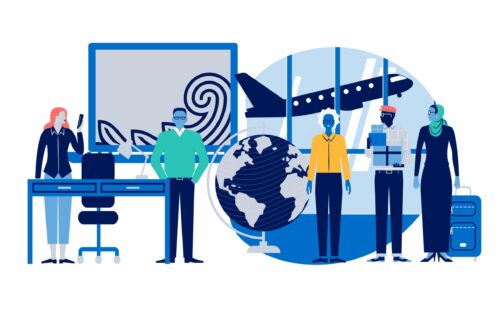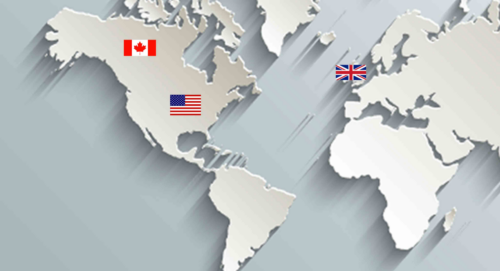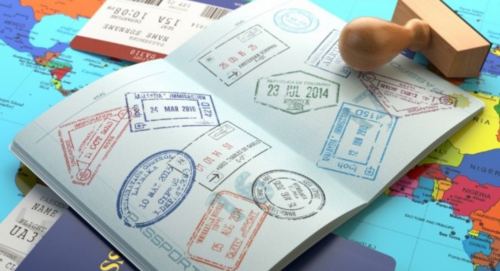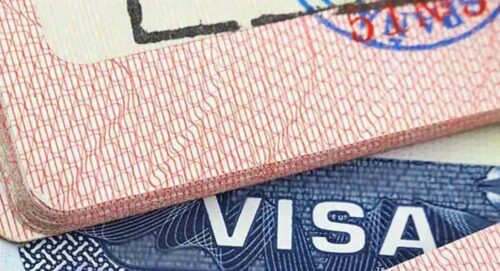- Home
- About us
- Contact us
- Service and Travel
- Leisure Travel
- Business Travel
- DMC Balkans
- DMC Albania
- Blog
- Home
- About us
- Contact us
- Service and Travel
- Leisure Travel
- Business Travel
- DMC Balkans
- DMC Albania
- Blog

Trying to predict the post-crisis changes to business travel has become a full-time prognostication game, from implementing trip approval to weighing the benefits of safety over savings.
While it may take two to three years for the industry to fully recover to pre-pandemic levels, business travel has already recovered from its lows. Masked road warriors are slowly returning to key markets, indicating that the future of business travel has arrived, ready or not.
While virtually every aspect of travel is changing to accommodate this new normal, one of the most critical areas to address is your procurement strategy and partnership with your Travel Management Company (TMC). Companies are now looking to their travel procurement teams to help protect their futures and guide them through the next stage of the recovery process.
How procurement managers can save on corporate travel
Almost every business decision, including those made by procurement managers, is made to save money and help the company's bottom line. Procurement managers, in particular, should use savvy corporate airfare procurement and other strategies to save money on corporate travel.
- Respond to changes that happen on corporate travel over time
Remember that today's corporate travelers are not the same as those from decades ago as you try to optimize your corporate airfare procurement. Millennial travelers account for a sizable proportion of business travelers, and they have distinct priorities. For example, they usually want to include some leisure time on their business trips.
Keeping your corporate travelers' needs in mind will save you money through employee satisfaction. After all, if your employees are satisfied with their travel experiences, they are more likely to volunteer for business trips or accept travel assignments. They are also more likely to remain with your organization.
- Build systems and policies for the travel program
The corporate travel program, like any other aspect of your company's operations, requires the development of systems, workflows, and policies. Systemization improves efficiency by establishing workflows for everything from booking and approvals to risk management and expense processes. Because fewer labor hours are required to complete the same task, increased efficiency translates into cost savings.
Systemization also makes onboarding new members of your travel procurement team much easier. It becomes easier to train them because you can simply outline your systems. It also makes it easier to gain insights that can lead to cost savings on business travel. This is due to the fact that you will have easy comparison points between bookings and other actions.
Furthermore, developing a system aid in ensuring that risk management standards and duty of care obligations are met. Simply incorporate them into your systems, and you will always adhere to the applicable standards.
- Constantly reevaluate your travel policy
Don't just leave your travel program's policies and systems in place once you've created them. Corporate airfare procurement strategies that are astute look at data and technological developments on a regular basis to see where there is room for improvement. This could include incorporating new technology into your processes or altering policies to accommodate the preferences of your new corporate travelers.
How to be active with travel management? – Consider a TMC
While delegation is important, company decision-makers should have some involvement in travel management. Senior management must interact with travel procurement managers on a regular basis in order to understand the issues they face. If the company uses a travel management company, senior management must interact with them or at the very least read their reports.
Procurement manager and TMC
Even if your company already has someone in charge of travel procurement, partnering with a travel management company (TMC) can be a wise decision. The internal procurement manager can act as a liaison: managers develop business travel policy and TMC implements it.
But you also get the benefits of working with a TMC, such as:
Support in Supplier Negotiations: Supplier negotiations, like any other business-to-business interaction, provide a significant opportunity for cost savings. TMCs have the necessary experience to assist you in negotiating a favorable contract. They can use your traffic volume to get good deals, or they can use their own volume if your company lacks it.
TMCs can also use their experience to help you manage and adjust your travel policies for reasons other than cost savings. This can also improve employee satisfaction and overall efficiency.
Pricing: TMCs' connections typically imply that they have access to the best corporate travel pricing. This has the obvious benefit of allowing you to save money on that trip.
Unused Ticket Tracking: Any company that travels for business will have unused tickets at some point. If you do not take advantage of these, you are wasting a significant amount of money. TMCs can track and make sure you receive the reimbursement.
Travel management technology
Using technology to manage travel, such as business travel procurement tools, may provide the greatest opportunity for savings. The role of a TMC here is to get better deals for you. It uses Global Distribution systems which gives access to superior flight rates and tracking systems. Additionally, they have access to more tools allowing to block prices to give procurement decision makers time to decide. A TMC can reserve group rates for large teams travelling too. These are systems that are unavailable to a Procurement director of a company.
- Tools and TMC for easier tasks
Interestingly, many of the advantages of using a TMC can also be obtained by using the right business travel procurement tools. For example, a TMC will take care of finding the best deal, track unused tickets, and learn about travel policies. You can get even better results by combining your airfare procurement automation tools with a TMC. The best TMCs will even encourage you to use such tools.
- Use integrated solution
When selecting business travel procurement tools, make sure they are compatible with your current programs. You must be able to integrate your solutions and relevant information.
- Improvement
Another critical criterion for airfare procurement automation tools is their ability to provide insights that will allow you to improve your cost savings and overall policies. Look for the ability, for example, to optimize travel programs over time based on insights and valuable data. Keep always in mind to build relationship with a TMC that has excellent historical background in term of connection in the travel industry. Once you have great historical data with your TMC, its managers can then go and negotiate on your behalf. Heads of procurement should take note to chose a TMC of strong development and relationship with travel companies around the world.
To conclude
While corporate travel is costly, it is an essential part of many businesses. Travel managers can employ clever strategies to keep the costs of corporate travel low, ensuring that this necessity does not have a negative impact on the company's bottom line. There are numerous strategies that can put you on the right track, ranging from using automation tools to leveraging the expert knowledge of TMCs to developing a policy that you constantly reevaluate and update as needed.





